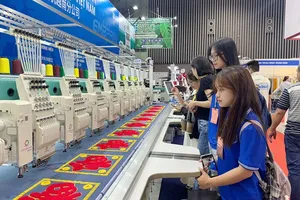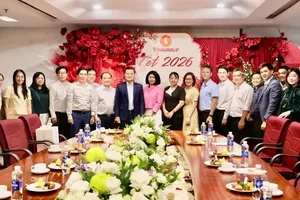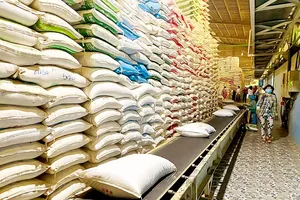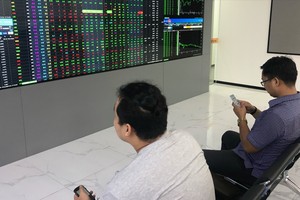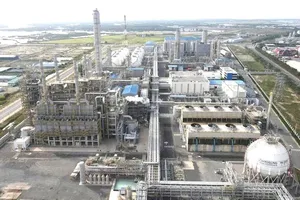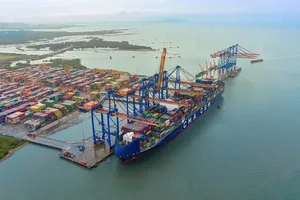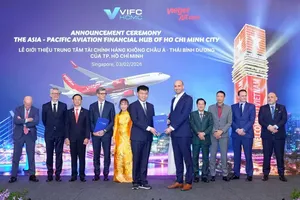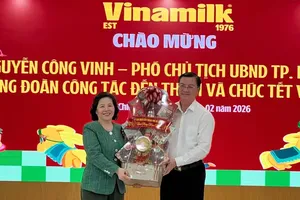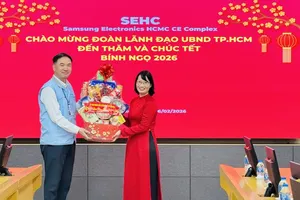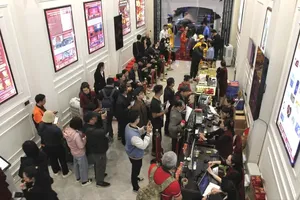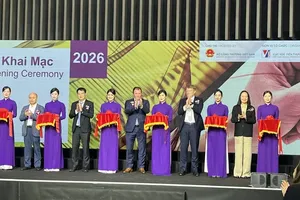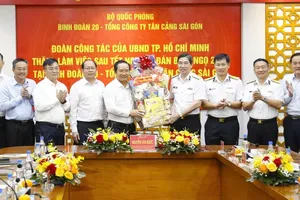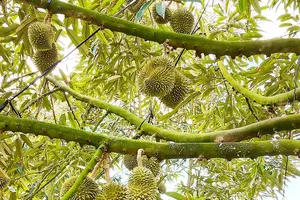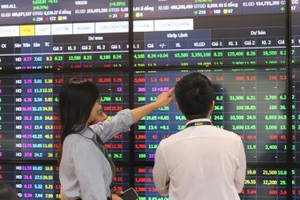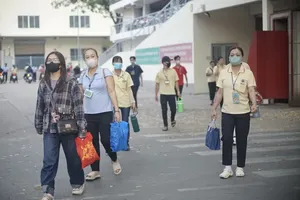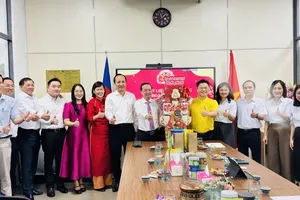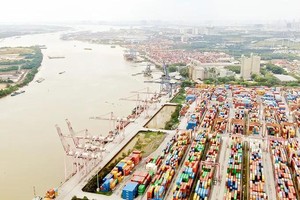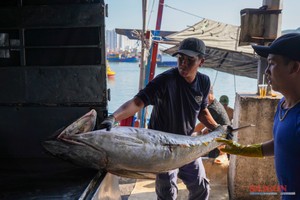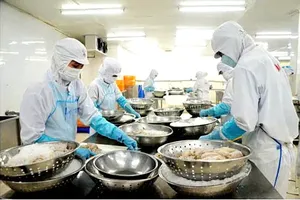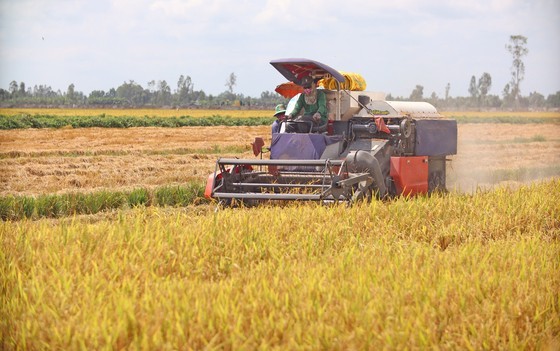 |
Rice harvesting in the Mekong Delta (Photo: SGGP) |
Statistics from the International Rice Research Institute (IRRI) show that out of 47 million tonnes of straw per year, only 20 percent is used as straw mushroom beds, cattle feed, cushion for fruit transportation. The rest is either burnt (20 million tonnes such each year in Vietnam) or buried in rice fields, which is a huge waste.
Lately, in Vi Thuy District of Hau Giang Province, the Ministry of Agriculture and Rural Development has introduced advanced machines to roll or mix straw to turn it into organic fertilizer. Obviously, the need for investment in the agricultural field is extremely high to make better use of produce and its by-products.
At present, the Agriculture and Rural Development Ministry is launching various measures to synchronize agricultural mechanization, which means a great need for collaboration between private businesses and agricultural cooperatives in the Mekong Delta to invest in machines to offer necessary services to farmers.
Chairman of the Hau Giang Province People’s Committee Dong Van Thanh shared that farmers in his locality have lately enjoyed benefits from Integrated Pest Management (IPM) projects such as GIZ or FARES to build their ability to select suitable rice seeds and conserve the ecology in rice fields.
Particularly, the Vietnam Sustainable Agriculture Transformation project (VnSAT), implemented on 35,000ha of rice fields here from 2015-2022, achieved promising results. The amount of CO2 reduced by 176,228 tonnes, accounting for 155.5. percent of the target. Farmers are now highly aware about sustainable agriculture and climate change adaptation.
The Government has also approved the Planning for the Mekong Delta in the 2021-2030, with a vision to 2050 in its Decision No.287/QD-TTg, issued on February 28, 2022, to bring even more chances and values for the growth of the area while still trying to adapt to climate change.
The planning focuses on the establishment of agricultural hubs (aquacultural products, fruits, rice, logistics) in such provinces as Ben Tre, Dong Thap, An Giang, Kien Giang, Ca Mau, Can Tho, Hau Giang. These hubs are responsible for produce researching, processing, preservation, and outputs. They should urgently apply mechanisms and policies to attract investments in agriculture.
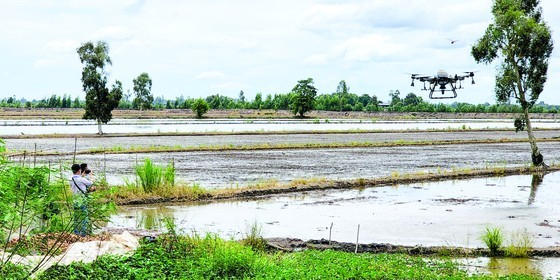 |
The Mekong Delta is encouraging farmers to use advanced technologies in agricultural activities (Photo: SGGP)
“Long An Province has always considered agriculture as the core in economic development. It is now simultaneously launching measures for hi-tech agriculture and agricultural restructuring. Its main exported produce types are banana, dragon fruit, and rice to sell in the markets of the US, Australia, Europe, the Republic of Korea, Japan, and China”, informed Chairman of the Long An Province People’s Committee Nguyen Van Ut.
Vice Chairman of the Ben Tre Province People’s Committee Nguyen Truc Son shared that the strong investment of the Government in the Mekong Delta (seaports, airports, irrigation systems) provides favorable conditions for land planning of localities to attract more investors in the agricultural sector, especially green and hi-tech one. He hoped for the development of specialized product chains in each province instead of unplanned investments, and for suitable land mechanisms to encourage the cooperation between farmers and businesses.
Director of the HCMC Department of Agriculture and Rural Development Dinh Minh Hiep stated that the city has discovered benefits when pouring money into the Mekong Delta, especially in the fields of agricultural tourism, hi-tech agriculture, and industry.
However, for this region to reach its full potential, there must be mechanisms to attract investors or businesses from agricultural product wholesale markets in HCMC to produce processing and manufacturing in specialized farms.
It is also necessary to increase quality control and product traceability, to promote trades and market expansion in association with the growth of regional-level logistics hubs and their counterpart located in HCMC, and to diversify cooperation types.
According to the Ministry of Agriculture and Rural Development, out of 900,000 enterprises in the country, only 50,000 are in the agricultural sector. This is not sufficient to create breakthroughs for sustainable agricultural development.
Minister of Agriculture and Rural Development Le Minh Hoan commented that the local authorities should continue to complete their own planning for hi-tech agriculture, with suitable preferential policies for businesses which invest in hi-tech agricultural zones and for farmers who implement advanced technologies in their agricultural activities.
